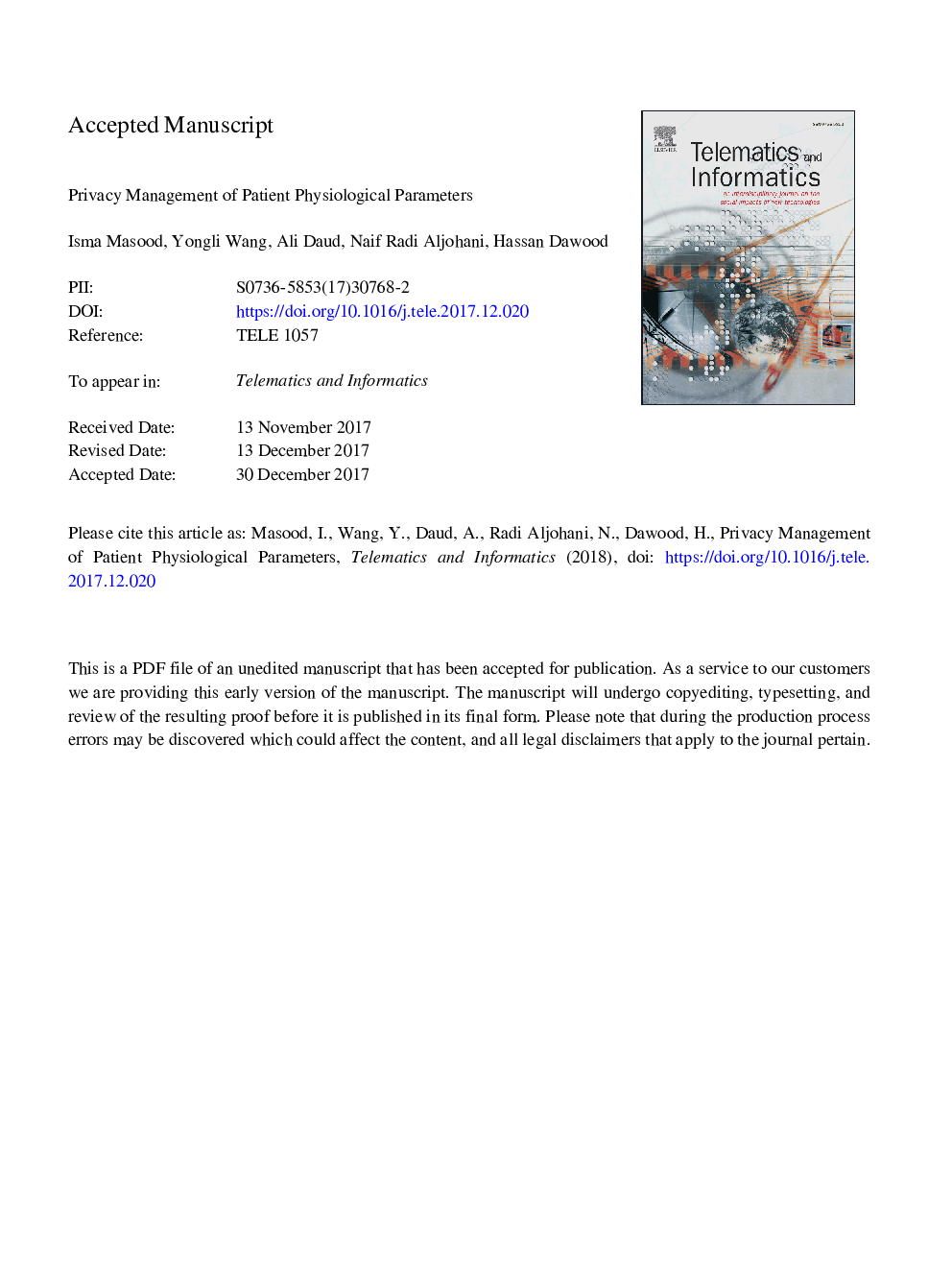| Article ID | Journal | Published Year | Pages | File Type |
|---|---|---|---|---|
| 6889547 | Telematics and Informatics | 2018 | 41 Pages |
Abstract
Patient Physiological Parameters (PPPs) seem to be the most extensively accessed and utilized Personal Health Information (PHI) in hospitals, and their utilization by the various medical entities for treatment and diagnosis creates a real threat to patient privacy. This study aims to investigate whether PPPs access in a hospital environment violates patient privacy. If so, to what extent can we manage patient privacy while accessing PPPs in this environment? We investigated this question by analyzing questionnaire-based data from two Asian countries: Group A (China) and Group B (Pakistan). For data collection, we targeted those medical entities which were directly dealing with PPPs in their routine tasks. Results suggest that patient type directly influences the collection of PPPs: Group A (one-timeâ¯=â¯1.9, follow-upâ¯=â¯1.06) and Group B (one-timeâ¯=â¯2.0 and follow-upâ¯=â¯1.9). Both groups agreed that patients have the right to control their own PPPs. In both, doctors are the most trusted entity: for Group A, the Pearson Chi-Square with one degree of freedom is 1.414, pâ¯=â¯0.234, whereas for Group B, the Pearson Chi-Square with three degrees of freedom is 4.511, pâ¯=â¯0.11. Most of the Group A entities (92%) are familiar with unauthorized access of PPPs, while in Group B the level was only 35%. In Group B, only 35% of entities stated the purpose, specification and use limitations of PPPs. Doctors in both groups showed a high utilization of PPPs read authorization rights. This empirical evidence about PPPs usage in both countries will benefit health technology and improve policy on patient privacy.
Related Topics
Physical Sciences and Engineering
Computer Science
Computer Networks and Communications
Authors
Isma Masood, Yongli Wang, Ali Daud, Naif Radi Aljohani, Hassan Dawood,
